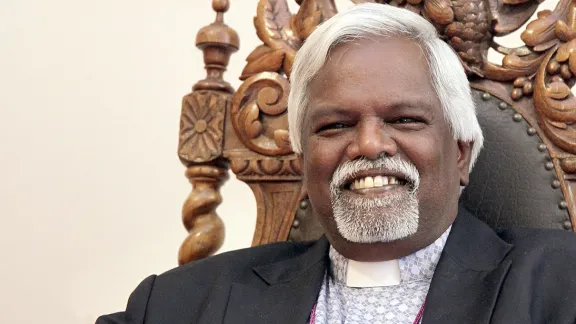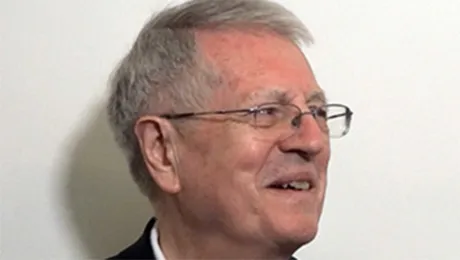
Bishop emeritus Dr Busi Suneel Bhanu. Photo: Dr Thilo Fitzner
Bishop emeritus Dr Busi Suneel Bhanu is on the seven-member LWF study group on Lutheran engagement in the public space. He reflects on the Indian context and expectations about the process.
Why is it important for the LWF to engage in this theological study process?
The LWF is a faith-based communion of believers in the liberating grace of God. As such, constrained by the love of God in Jesus Christ and motivated by the truth that every person is created in the image of God, it is only natural for the LWF to engage in this study process. Firstly, in order to recognize, sustain, nurture and value the authentic human dignity of all people irrespective of their caste, creed, color or gender. Secondly, as a faith-reflecting organization in its work and witness, it becomes urgent and necessary for the LWF to engage in creative and life-affirming theological articulations that can offer possibilities for constructive and positive interfaith cooperation and engagement. This is particularly important for the well-being and harmonious living together of all, especially in the present situation where public space to strengthen initiatives for peace, justice and human dignity is rapidly shrinking.
What do you expect from this process for the LWF member churches in your region?
The hope is that this LWF process would first and foremost become a powerful wake-up call for the member churches. I hope that the churches can become aware of and sensitive to the gradual shrinking of the ‘public space’ available for civil society, and that they can also realize the hope and aspirations of marginalized groups and their right to fully and equally participate in this space. Secondly, I hope that this study process would also trigger a ‘tsunami of creative consciousness' in the Lutheran communion in India towards a pro-active engagement without reservation to challenge the life-negating forces and unleash the dynamic and vibrant resources to realize the life-affirming ‘Nazareth Manifesto’ in the churches’ work and witness. Thirdly, I hope the process can help to offer the “publicness” of God to all in society rather than continuing to enjoy the privatization of Jesus Christ, the liberator.
What do you see as important theological insights that should be articulated in this process?
In the Indian context, religion is being manipulatively used to deny human dignity and thereby marginalize certain vulnerable groups of people. The church’s prophetic witness in the public space therefore, also calls on the church to be transformed in order to transform all in the society. By embracing this reconciled diversity, the church would help to create a dynamic and vibrant public space at the margins of society for the peaceful co-existence of all.
Bishop emeritus Dr Busi Suneel Bhanu, from India’s Andhra Evangelical Lutheran Church teaches religion, interfaith relations and Dalit theology at the Gurukul Lutheran Theological College and Research Institute in Chennai, where he also serves as dean of the Department of Research and Doctoral Studies. He is an LWF Council adviser on the Committee for Theology and Ecumenical Relations. Prof. Suneel Bhanu is also chairperson of the Andhra Pradesh Christian Council, an auxiliary to the National Council of Churches in India; and vice-chairperson of the Churches Auxiliary for Social Action humanitarian response network.


